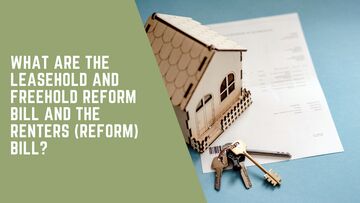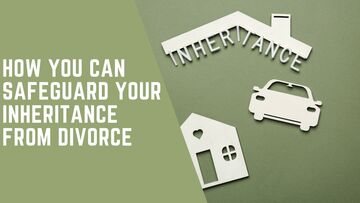Why Is Conveyancing Taking So Long in 2022?
Conveyancing| 06.05.2022
If I were to ask you how long you expect a new property sale/purchase to take from an agreement to buy to completion, how long would you say? 12 weeks? 15 weeks? If you said 20 weeks, you are correct.
According to the latest data from Rightmove, the average completion time is currently 150 days. And if you think this is higher than in previous years, you are also correct. In 2019, the time to completion was two-thirds less at around 100 days. For buyers and sellers alike, having to wait the best part of half a year for your money or keys can seem like an eternity. At present, many buyers desperately want to be in their new homes by Christmas, placing more pressure on conveyancers to complete as soon as possible. In this article, we will discuss the reasons why residential property completions are taking 50 days longer than in 2019 and what you can do to reduce the timescale for your transaction.

Reason 1: A large Backlog Of Housing Transactions
At the end of June 2022, Rightmove reported that there were in the region of half a million homes sold subject to contract. To put this into perspective, this is 44% more than at the same time in 2019. One of the key factors in this was the huge pent-up demand driven by COVID-19. In recent months, the residential property market in the UK has eased slightly, allowing conveyancers to begin catching up, but it is expected that the backlog will remain for many months yet.
Reason 2: Huge Demand For Searches
According to search firm Search Acumen, they handled 60% more searches in 2021/22 than a year earlier and 32% more than in 2019/20. Search Acumen’s Director, Andy Somerville, explains, “Andy Sommerville, director of Search Acumen, commented: “The conveyancing market has been turning the wheels at breakneck speed for over a year now, with a meteoric rise in transaction activity over the last financial year following the initial pandemic lull”. Adding to the record-breaking demand for residential property searches, some local authorities have quite protracted search times; in some cases, up to 30 working days.

Reason 3: Time To Get A Mortgage Offer
Many people underestimate how long it can take to receive a formal offer from a mortgage lender. The process of applying for a mortgage, providing the necessary documents, and then waiting for a decision can take 4 – 6 weeks. For complex applications or where more information is requested from the prospective borrower, this can take even longer.
Reason 4: Not All Law Firms Leverage Digital Services
Conveyancing has increasingly digitised in recent years, meaning that much of the information sent and received by conveyancers is transmitted electronically. Digital conveyancing processes and systems make the whole process much faster and more efficient, reducing the time between each stage and the potential for transactions to sit in limbo unnecessarily. Unfortunately, not all conveyancing companies have invested in and taken advantage of technology to speed up the home buying/selling process.

What Can I Do To Speed Up The House Buying/Selling Process?
As a residential property seller or buyer, there is much you can do to hasten the transaction process. It is important to bear in mind that the steps involved in the conveyancing process are all essential and designed to protect your legal and financial interests. As such, be wary of any law firm offering hugely accelerated completion times. While some efficiency can be gained through technology and best practice, this should never come at the cost of the property owner or buyer. Some of the steps you can take include:
- Instruct a reputable conveyancer as soon as possible
- Where possible, engage a conveyancer with the latest digital conveyancing technology
- Arrange your mortgage as soon as possible – this is especially important if you are self-employed and need to provide audited accounts to your lender to secure a full mortgage offer.
- Arrange a building survey as soon as possible
- As soon as possible, gather all of the paperwork and information that may be useful later in the conveyancing process
- Provide a realistic target date for your completion
- Keep in contact with your conveyancer, so you understand the current status of your purchase/sale
- Respond to any questions or queries as thoroughly and quickly as possible
- Engage with the seller’s estate agent to help progress the transaction where needed.
Final Words
The importance of engaging a residential property conveyancer you can trust to handle your matter in a smooth, efficient, and professional manner cannot be overstated. The best conveyancers understand that their job is to balance your wishes with protecting your interests. They will explain the progress at each stage, giving you the confidence that all is in hand, any issues are being dealt with, and you have the very best chance of completing on your preferred date.
The residential property conveyancing team at Pearcelegal has the experience and legal expertise to advise and represent you with any property sale, purchase, or other legal matter. To make an appointment, please contact us on 0121 270 2700 or enquire through our contact form.
Expert advice for you Book a free consultation
The team at Pearcelegal will be delighted to discuss your legal matters and give you a no-obligation quote.



